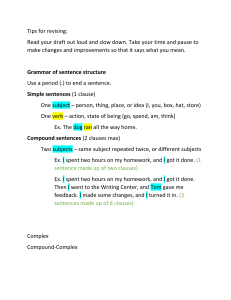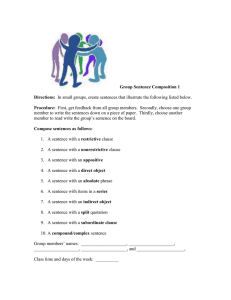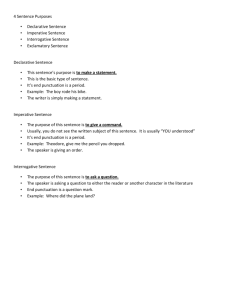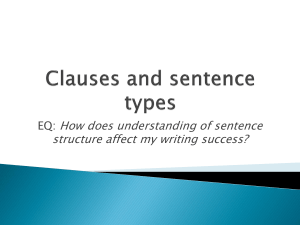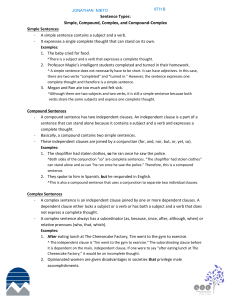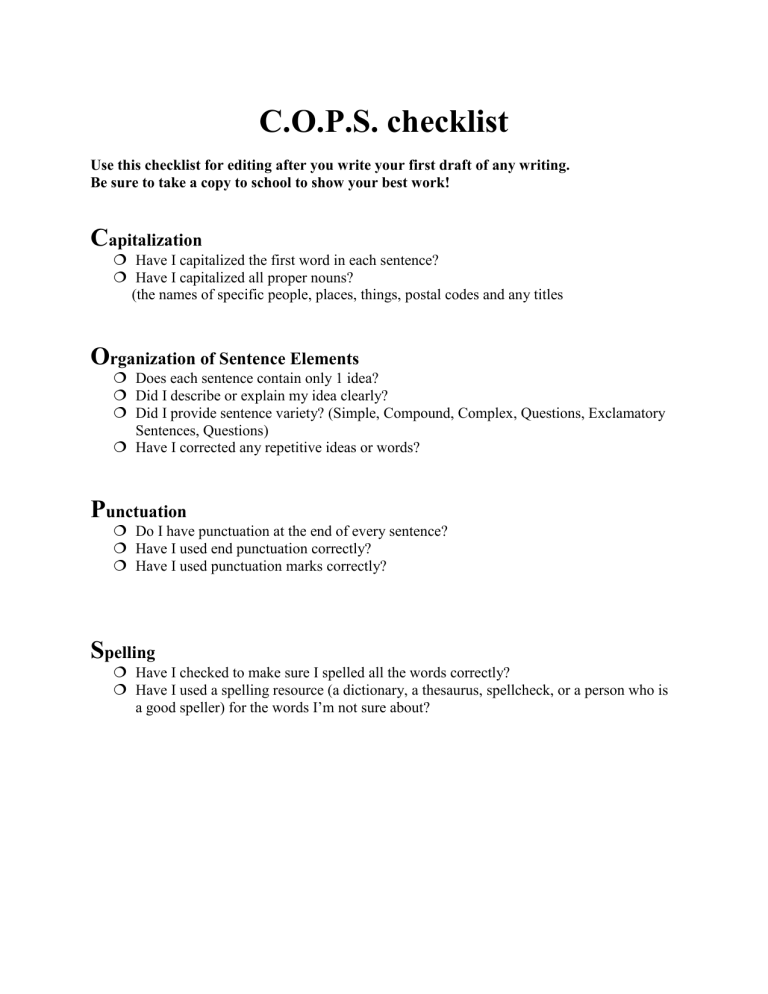
C.O.P.S. checklist Use this checklist for editing after you write your first draft of any writing. Be sure to take a copy to school to show your best work! Capitalization Have I capitalized the first word in each sentence? Have I capitalized all proper nouns? (the names of specific people, places, things, postal codes and any titles Organization of Sentence Elements Does each sentence contain only 1 idea? Did I describe or explain my idea clearly? Did I provide sentence variety? (Simple, Compound, Complex, Questions, Exclamatory Sentences, Questions) Have I corrected any repetitive ideas or words? Punctuation Do I have punctuation at the end of every sentence? Have I used end punctuation correctly? Have I used punctuation marks correctly? Spelling Have I checked to make sure I spelled all the words correctly? Have I used a spelling resource (a dictionary, a thesaurus, spellcheck, or a person who is a good speller) for the words I’m not sure about? Sentence Types: Simple Sentences - A simple sentence contains a subject and a verb. - It expresses a single complete thought that can stand on its own. Examples: 1. Professor Maple’s intelligent students completed and turned in their homework. 2. Megan and Ron ate too much and felt sick. Compound Sentences - A compound sentence has two independent clauses. - Basically, a compound contains two simple sentences - These independent clauses are joined by a conjunction (For, And, Nor, But, Or, Yet, So) OR they are joined by a SEMI-COLON alone without a conjunction (FANBOYS). . Examples: 1. The shoplifter had stolen clothes, so he ran once he saw the police. 2. They spoke to him in Spanish, but he responded in English. 3. I am tired; I picked apples all day. 4. The sunset is gorgeous this evening; I bet that is what Heaven looks like. Complex Sentences - A complex sentence is an independent clause joined by a dependent clause. - A dependent clause either does not have a subject/noun or a verb or has both a subject and a verb that does not express a complete thought. - A complex sentence always has a linking word (as, because, since, after, before, eventhough, although, when) or relative pronouns (who, that, which). -The independent clause is separated from the dependent clause by a COMMA. Examples: 1. After eating lunch at The Cheesecake Factory, Tim went to the gym to exercise. 2. I went to the gym, before I went to work. Compound-Complex Sentences - A compound-complex sentence has two independent clauses and at least one dependent clause. Examples: 1. After the two soccer players lost their game, they joined their other teammates for lunch, and they went to the movies. 2. The man believed in the system, and he knew that justice would prevail after the murderer was sent to jail.

